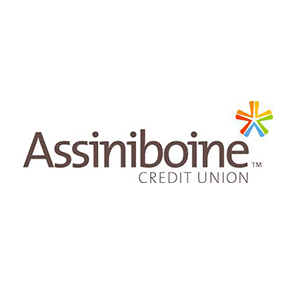 Assiniboine Credit Union (ACU), a financial institution based in Winnipeg with nearly 600 employees, over 100,000 customers (members) and over $3 billion in assets, has a mission to provide financial services for the betterment of their customers (members), employees and communities. Their vision is of a “world where financial services in local communities contribute to a sustainable future for all”. As part of their mission, they look for opportunities to provide financial services that make a difference in the lives of people and communities not well served by mainstream financial institutions. They also build partnerships and invest financial and non-financial resources to foster self-reliant, sustainable communities.
Assiniboine Credit Union (ACU), a financial institution based in Winnipeg with nearly 600 employees, over 100,000 customers (members) and over $3 billion in assets, has a mission to provide financial services for the betterment of their customers (members), employees and communities. Their vision is of a “world where financial services in local communities contribute to a sustainable future for all”. As part of their mission, they look for opportunities to provide financial services that make a difference in the lives of people and communities not well served by mainstream financial institutions. They also build partnerships and invest financial and non-financial resources to foster self-reliant, sustainable communities.
They pursue their inclusive objectives through community hiring, financial inclusion, ‘social impact’ financial services and social purchasing, expanding opportunities for people facing economic barriers as employees, customers and suppliers.
With a focus on community hiring, ACU’s “Diversity and Inclusion Vision” is to be an inclusive workplace with a diverse workforce that mirrors the communities they serve. To move this vision forward they established a steering committee of senior leaders and managers to lead their Diversity and Inclusion vision and strategy. They conduct regular workplace surveys to measure their progress and partner with community organizations and schools to provide training and employment for people facing barriers to employment. The following table summarizes their diversity and inclusion progress as of 2012:
| Group | % of community | % of ACU employees |
|---|---|---|
| Aboriginal People | 10.0% | 9.2% |
| People of Colour | 16.0% | 20.0% |
| People with Disabilities | 6.4% | 7.3% |
With a commitment to financial inclusion, the credit union also sets goals to increase access to affordable financial services for people living in poverty. ACU works with community partners to open accounts for unbanked and under-banked citizens and partners with SEED Winnipeg to help families living on low income open Registered Education Savings Plans (RESPs) to save for their children’s post-secondary education. They also offer special Matched Savings Accounts for participants of poverty-reducing asset building programs offered by members of the Winnipeg AssetBuilders Partnership. ACU employees are also engaged: the employee-led United Way Campaign raised over $95,000 for asset building programs in 2012.
The credit union pursues strategies to grow the value of ‘social impact’ financial services benefitting underserved neighbourhoods, organizations, communities and households. In 2012 they opened an inner city branch, and created the Community Financial Centre to better serve non-profits, co-operatives and social enterprises and to deliver special micro-credit programs. With SEED Winnipeg they launched the “Recognition Counts! Loans for Skilled Immigrants Program” to support skilled immigrants living on low income to pursue certification, upgrading or training so they can gain employment in their field here in Canada.
In 2012 ACU reports 461 unbanked/under-banked individuals who opened accounts through community partnerships, 268 new RESPs opened for low-Income families, and 686 Asset Building Program participants who used ACU’s Matched Savings Account to save. As well, in 2012 the credit union approved $4.3M in new financing for affordable housing, $6.2M in financing for community facilities and $.2M in micro-credit financing for business start-ups and expansion. By the end of 2012 they had nearly $45M invested in community finance loans.
Assiniboine also includes inclusive objectives in its procurement program. In 2012 they sourced over $350,000 in goods and services from inner-city businesses, co-operatives, fair-trade suppliers and social enterprises. For example, they hired Inner City Renovations, a social enterprise which hires inner city low-income residents for construction projects, to renovate their new inner city branch.

Inclusive Business
Expand opportunities for all populations as employees, suppliers, distributors and customers.
